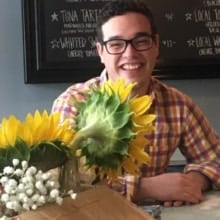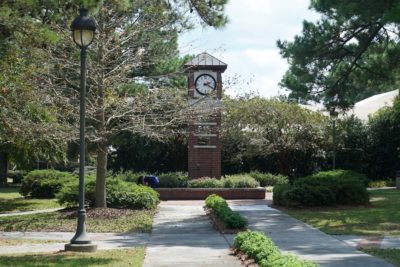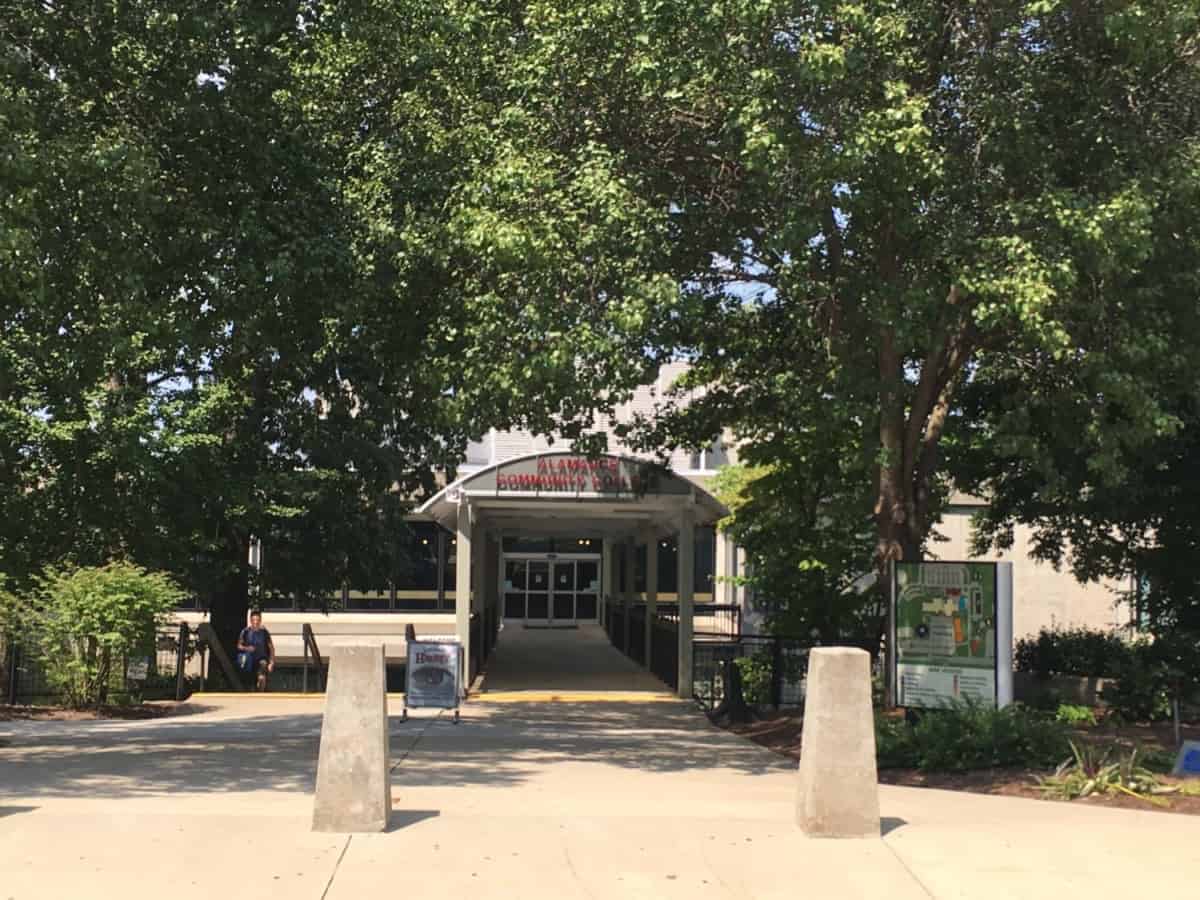
EdNC recently launched a community college student fellowship to engage community college students with our work and help guide EdNC in our coverage of community colleges. The Awake58 Fellows are made up of 10 students at six community colleges — Alamance, Catawba Valley, Forsyth Tech, Gaston, Rowan-Cabarrus, and Wilkes. The students were nominated by their respective institutions.
The first cohort of fellows are primarily focused on raising awareness about Finish Line Grants, a federally funded grant that provides emergency financial assistance to community college students for things like housing, medical needs, child care, and other unexpected financial emergencies. As evidenced by the name, the intention is to help students complete their community college education. To qualify, students must be at least 50% of the way through their degree or credential and can receive up to $1,000 per semester. For more on the Finish Line Grants, read our coverage here.
Over the past few weeks, EdNC has traveled to all six colleges to meet the Awake58 Fellows. We began our visits meeting with Misty Long of Gaston Community College and Eva Nicholson of Rowan-Cabarrus Community College. Both older students, Long and Nicholson spoke of respect for their peers, resiliency and dedication to their studies, and love for their grandchildren.
While at Gaston Community College, Long has worked with Gaston’s other Awake58 Fellow, Katie Taylor, to connect with faculty, create messages on their campus’ internal communications board, and produce radio segments in order to test the best methods to engage more students in their work.
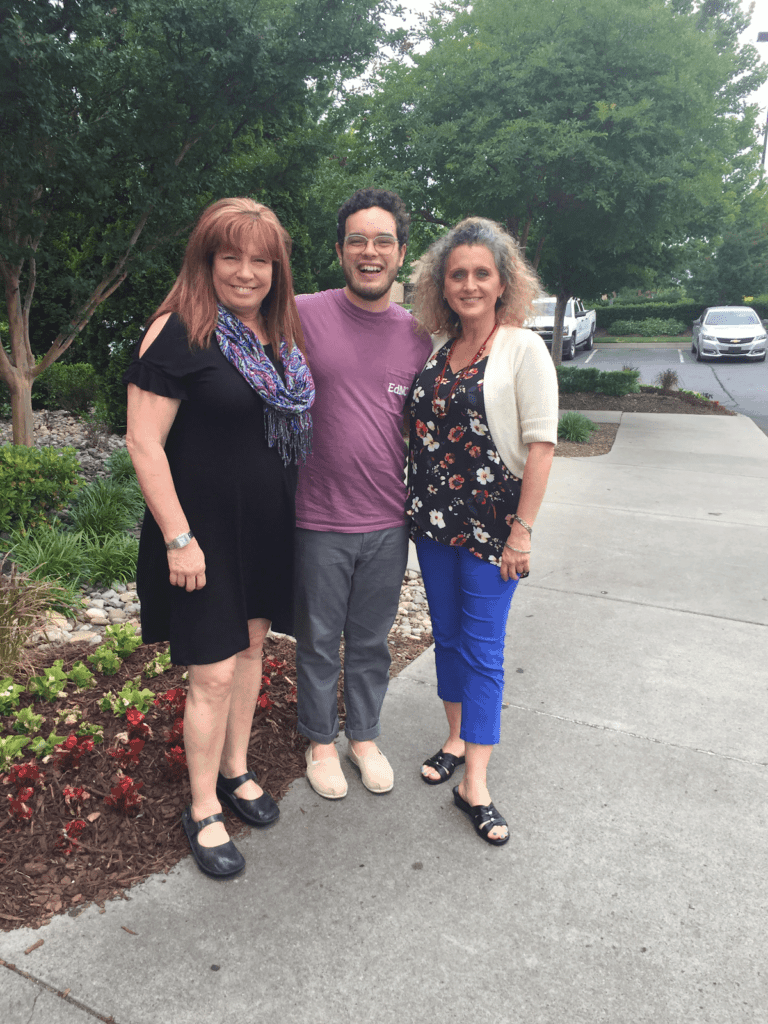
In addition, Long and Taylor have helped raise awareness of the complexities of the Finish Line Grants process to campus leaders. We met with Taylor the following week, and she stressed that outreach efforts were developed in response to the difficulties of reaching online students and night class students whose interactions with on-campus spaces are varied.
Over in Rowan County, Nicholson serves as the outgoing student body president for Rowan-Cabarrus Community College. Nicholson has spent her tenure focused on advocating for students. She works at the wellness center on campus and spends her days connecting students to resources that support them physically, financially, and emotionally. As an Awake58 Fellow, Nicholson has spent her time engaging students one on one and in groups at campus events.
We also traveled to Winston-Salem to meet with Mallory Calfee and Jessica Frantz of Forsyth Technical Community College as well as Beverly Lewis, director of student life and engagement, and President Janet Spriggs.
Calfee was a Finish Line Grants recipient after her car was sideswiped in a hit and run. “I would have to drop out without the car repair funding that came through Finish Line,” she said.
Calfee described the process as relatively seamless in terms of applying for the grant, but said the funds did not come for two and a half weeks, which was a significant challenge. Because Calfee knew the staff in the Forsyth Tech student services department well, they gave her a cash advance for the car repairs while she waited for the Finish Line funds to arrive. Without the department fronting the money, Calfee said she would have likely had to drop out.
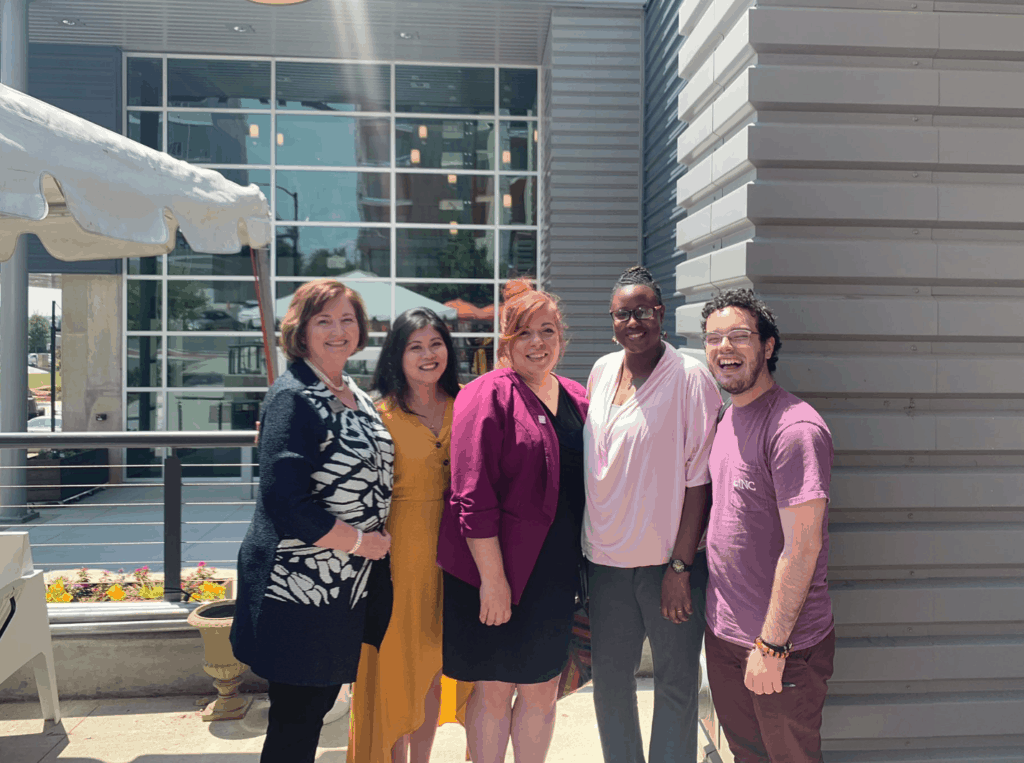
Frantz is the incoming student body president at Forsyth Tech. One barrier for accessing Finish Line Grants she identified is the resistance some students have to reaching out for help when they are in a financial crisis. In her view, there is a clear stigma some feel regarding their own need for financial assistance.
As a result, both Calfee and Frantz have been working to create content for the school’s televisions so all students at Forsyth Tech can review information for Finish Line Grants themselves and begin applying for a grant online. They hope this strategy will reduce the applicant’s need to disclose a personal financial emergency to staff or peers initially and therefore increase the number of applicants.
Another finding from their work is the importance of proximity and access to staff. Calfee and Frantz noted the staff member responsible for Finish Line Grants was located on West Campus instead of the primary campus, which has proven problematic for students with timing challenges and transportation barriers. Over the course of the conversation, Spriggs said she would look into moving the case manager to the primary campus either full time or for office hours.
Following our time in Winston-Salem, we drove to Wilkesboro to meet with representatives from Wilkes Community College. Devin Sullins is an Awake58 Fellow at Wilkes and has been creating multimedia content to spread the word about Finish Line Grants. He mentioned the difficulty of designing fliers since the requirements for Finish Line Grants can vary depending on the county in which a student attends community college. Sullins is working to create materials that can be easily accessed by students to assist them in applying for Finish Line Grants.
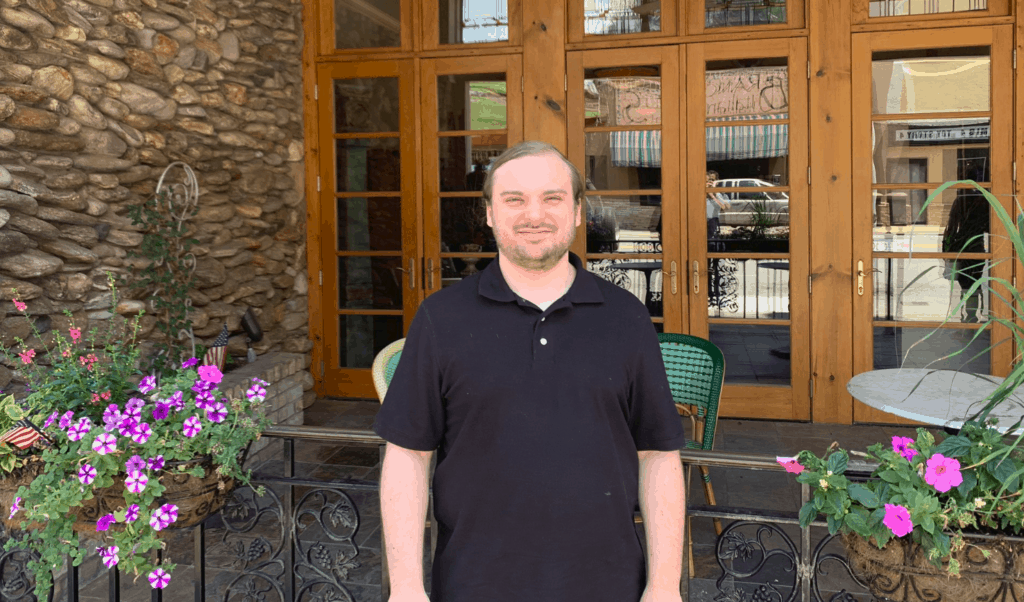
We continued our visits with Awake58 Fellows at Catawba Valley Community College in Hickory. Amanda McSwain and Emily Turner have been working to raise awareness about these funds by directly targeting students and faculty. While they’ve seen that many students have not heard of the funds, they were surprised to find out how many faculty members also have not heard of Finish Line Grants. McSwain and Turner found this to be a crucial knowledge gap as faculty are typically the first people on campus students reach out to if they have an emergency. One lesson from all of the fellows is the need to educate faculty and staff on the process and the program.
We ended our visits at Alamance Community College meeting with Rosalyn Chambers and Bailey Burr who have devised a “divide and conquer” plan to raise awareness of Finish Line Grants on campus. Chambers has been tackling outreach efforts on campus through events and fliers while Burr has been stationed in their One Stop office helping screen and answer questions for students. They have been working together with their One Stop office at Alamance and noted the uptick in students receiving Finish Line Grants on campus.
For Chambers, this work is personal; she was a recipient of a Finish Line Grant for critical dental work that allowed her to continue going to class. She considers the opportunity to connect students to needed financial resources so they can continue their studies as one of the most meaningful projects she’s worked on at Alamance.
While the fellows have each identified unique challenges and successes in their approaches to the work, they all share a deep commitment to supporting other students. We are excited to see where the work takes them and to follow the students as they support their peers across the state.

